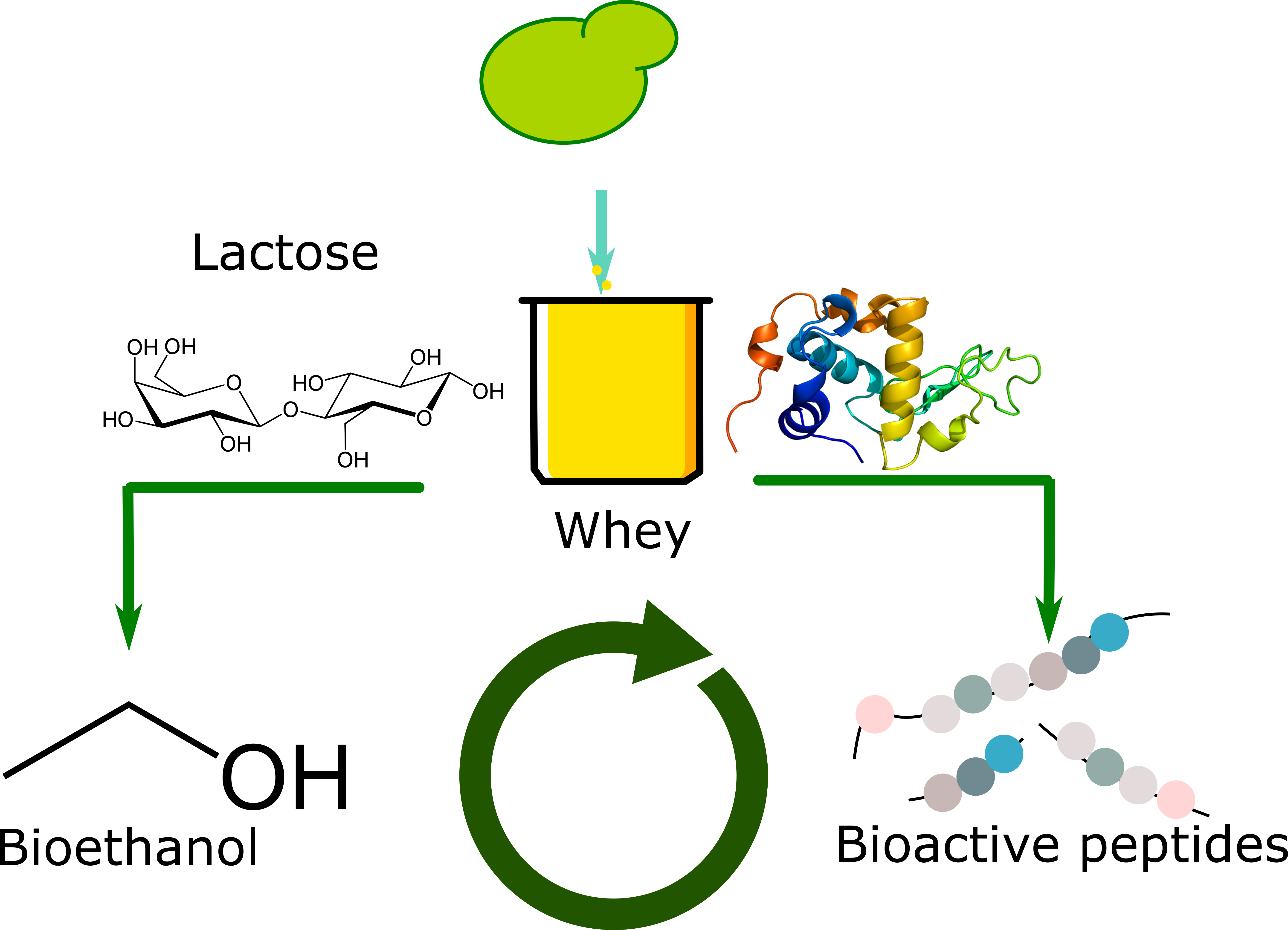Whey is the main by-product of the dairy industry and contains sugars (lactose) and proteins (especially serum proteins and, at lesser extent, residual caseins), which can be valorized by the fermentative action of yeasts. In the present study, we characterized the spoilage yeast fraction inhabiting natural whey starter (NWS), the undefined starter culture of thermophilic lactic acid bacteria used in Parmigiano Reggiano (PR) cheesemaking, and evaluated thermotolerance, mating type, and the aptitude to produce ethanol and bioactive peptides from whey lactose and proteins, respectively, in a selected pool of strains. We found that PR NWS yeast population consists of other species (Saccharomyces cerevisiae, Wickerhamiella pararugosa, and Torulaspora delbrueckii) in addition to the well-documented Kluyveromyces marxianus, with multiple biotypes scored within each species. Haploid and diploid K. marxianus strains were identified through MAT genotyping, while thermotolerance assay allowed the selection of strains suitable to grow up to 48 °C. In whey fermentation assay, one thermotolerant strain was suitable to release ethanol with yield of 86.5%, while another candidate was able to produce the highest amounts of both ethanol and bioactive peptides with potentially anti-hypertensive function. The present work demonstrated that PR NWS is a reservoir of ethanol and bioactive peptides producer yeasts, which can be exploited to valorize whey, in agreement with the principles of circularity and sustainability.

